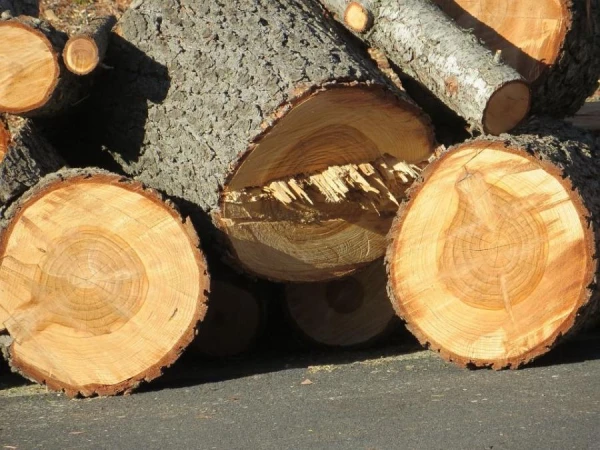
Before allowing more intensive logging in Latvia, it is necessary to assess how it will affect natural values, said in an interview with the LETA agency the Minister of Smart Management and Regional Development Raimonds Chudars ("New Unity"), LETA reports.
Regional Development Minister: Before allowing more intensive logging, it is necessary to assess the impact on natural values
"Homework not done": Minister against hasty increase in logging
The politician explained that the state has already approved the volumes of timber reserves that can be used in forestry over the next five years. If the volumes are increased, it is extremely important to determine what impact this will have, primarily on the preservation of natural values, the minister noted.
He pointed out that the Ministry of Agriculture, which oversees the forestry sector, is currently in the process of creating and discussing with stakeholders the Basic Provisions for Forest Management to reach an agreement on whether a significant increase in timber reserves will have negative consequences for natural values.
"We have not yet done our homework that would allow us to draw conclusions. Therefore, if we are rapidly moving towards a significant increase in harvesting volumes, it is quite logical that we must clearly understand the possible consequences, which will be long-term," the minister emphasized.
The same applies to the Forest Law, as well as the proposal to lower the age for the main felling of trees.
The second important aspect is the calculation of CO2 emissions in the future in the case of more intensive forestry management. This issue also needs to be taken into account when making a decision about increasing logging volumes, the minister stressed.
"Currently, we do not have data that unequivocally proves that this will not have a negative impact on the growth of CO2 emissions in the future, which, in turn, affects the international obligations of the state as a whole," Chudars added.
He believes that the position of the Ministry of Smart Management and Regional Development regarding the need to understand the consequences of a possible decision is key.
As reported, the Ministry of Agriculture has prepared amendments to the Forest Law, which propose to lower the age for the main felling for several tree species.
More than 20 organizations have submitted objections to the amendments prepared by the ministry.
According to the prepared and submitted amendments for approval, it is proposed, for example, to lower the age for the main felling of spruce by 30 years — from 81 to 51 years.
For pine, the age for the main felling is proposed to be lowered by 20 years — from 101 to 81 years, for birch and black alder — also by 20 years, from 71 to 51 years, and for aspen — by 10 years, from 41 to 31 years.
At the same time, the age for the main felling is not planned to be changed for oak and larch — it will remain 101 years, as well as for ash, lime, elm, alder, and maple — 81 years.
It is also proposed to establish that henceforth the age for the main felling will not differ by groups of tree bonitet. Currently, in the existing Forest Law, the age for the main felling varies across three groups: trees with bonitet of the first and higher class, second and third class, as well as fourth and lower class.
The amendments also provide for the abandonment of the requirement to conduct a forest re-inventory every 20 years, as the State Forest Service updates this data annually. The ministry explains that forest inventory is an expensive and labor-intensive process, for which the forest owner pays, including data from areas where economic activity is prohibited, and which the state uses only for its own needs.
In addition, the amendments propose to establish that forestry activities carried out in accordance with this law are recognized as compliant with regulatory requirements in the field of species and habitat protection.













